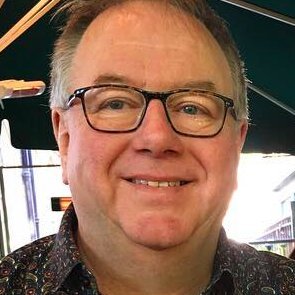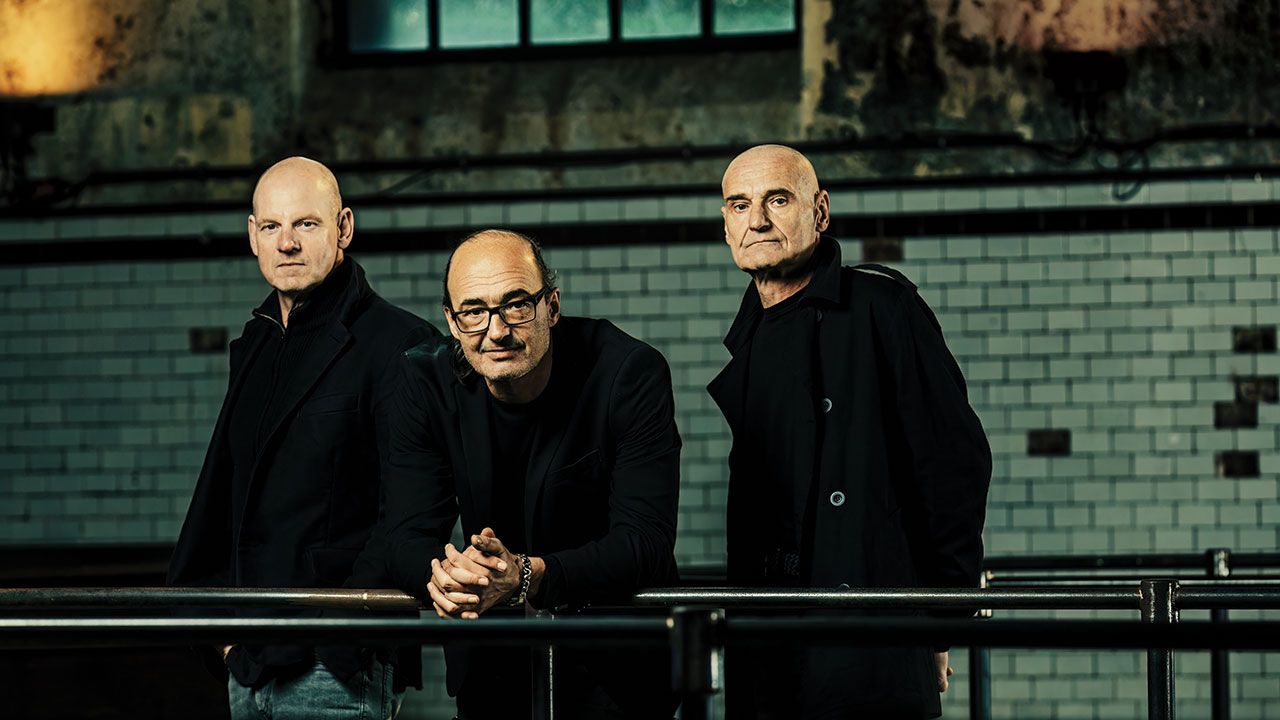“We were playing things like Chuck Berry. I was just horrified, because I’m a choirboy”: How Richard Sinclair helped build the Canterbury scene with Caravan, Hatfield And The North, Camel and more
He shares memories of Pye Hastings, Robert Wyatt, Kevin Ayers, Andy Latimer and many other collaborators from his rich heritage, soon to be include with his long, long awaited debut solo album
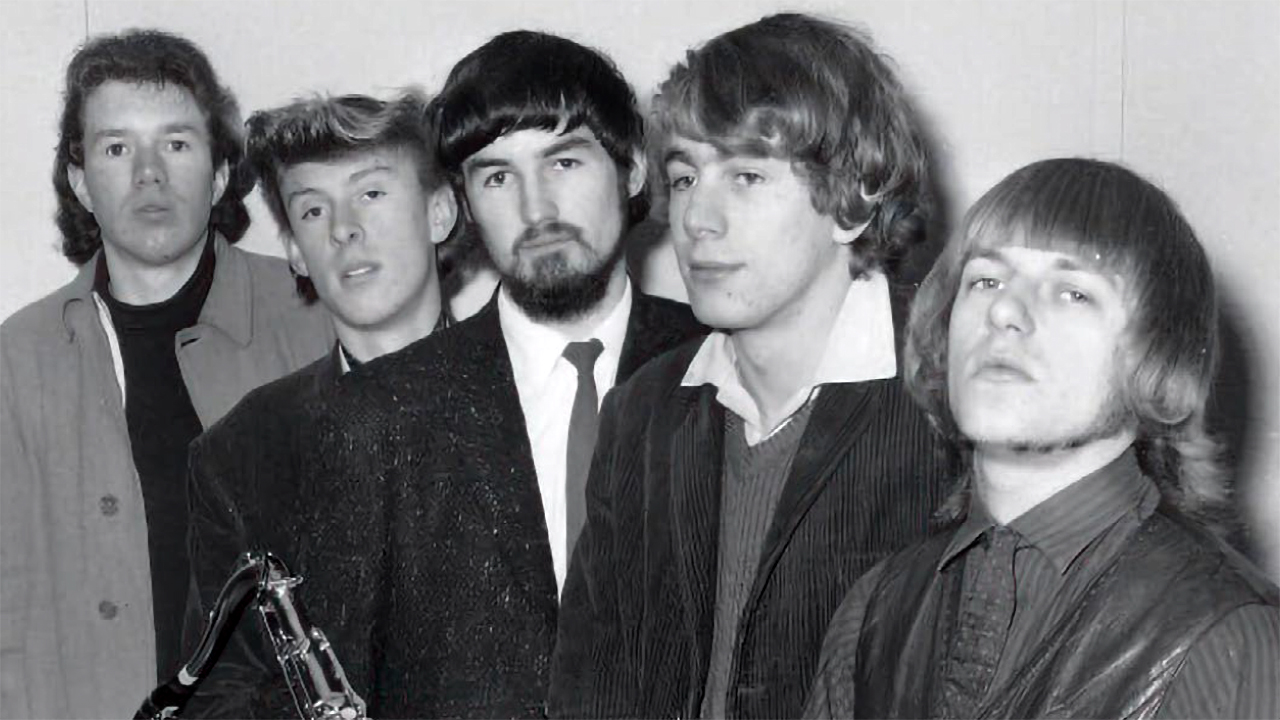
Select the newsletters you’d like to receive. Then, add your email to sign up.
You are now subscribed
Your newsletter sign-up was successful
Want to add more newsletters?
Richard Sinclair initially learnt to play ukulele encouraged by his singer father. He was a choirboy at school, and, aged 16, became a guitarist in The Wilde Flowers with his friends Hugh and Brian Hopper. The group never released any music in their lifetime, but became legendary as the progenitors of the Canterbury scene. In 1968 Sinclair was one of the founder members of Caravan, switching to bass and shared vocals with guitarist Pye Hastings.
The songs on Caravan and If I Could Do It All Over Again, I’d Do It Over You (1970), were group compositions; but Sinclair’s vocals and songs came to the fore on In The Land Of Grey And Pink (1971). For 1972’s Waterloo Lily, Steve Miller joined on keyboards; he and Sinclair went on to form Hatfield And The North.
In their brief lifespan they established themselves as one of the quintessential Canterbury scene groups, recording Hatfield And The North (1974) and The Rotters’ Club (1975). In 1994, Robert Wyatt said of Sinclair’s singing: “What a lovely voice. It’s so true. He always used to sing in tune, which I thought was pretty avant-garde at the time.”
Sinclair went on to join Camel as bassist-vocalist, recording Rain Dances (1977) and Breathless (1978). Into the 80s and 90s he fronted his own bands and played in the original version of In Cahoots with Phil Miller. He reformed Hatfield And The North in the 1990s and 2000s and was involved in Caravan reunions, recording Back To Front in 1982.
Now living in Puglia, southern Italy, Sinclair is working on new material and makes guest appearances playing concerts and recording with younger musicians, including 2023’s live album In The Land Of Pink And Black. He sums up his approach thus: “I was never really a rock singer, more a popular music singer in a rock band.”
You were born in Canterbury. Does your family have roots there?
The Sinclairs were a Canterbury family back to about 1800. My grandad, Richard, was a musician, comedian and entertainer. My dad was known as Dick Sinclair and I’m called Richard, so the joke is there’s a line of dicks! He was an entertainer and used to do dinner dance concerts and things like that. He had a voice like Nat King Cole. And so right from the word go, I was brought up in a situation of singing and playing music.
Sign up below to get the latest from Prog, plus exclusive special offers, direct to your inbox!
The parents of Hugh and Brian Hopper [later with Soft Machine] used to go see my dad and they were good friends. Jimmy Hastings [later with Caravan] used to play with my father. ‘The Canterbury scene’ came from an article written by journalist Al Clark for a music magazine, but my Canterbury scene was the connection between the families. And I went to the Archbishop’s School. My headmaster was Mr Ratledge, the father of Mike Ratledge, the keyboard player in Soft Machine.
In 1964 you played with Hugh and Brian Hopper in The Wilde Flowers, along with Kevin Ayers and Robert Wyatt. How did that come about?
Hugh and Brian had started a band. My dad told Hugh’s parents, “I’ve just bought my son an electric guitar and amp.” I rehearsed with them, but it really started when Robert and Kevin joined. Our first concert was in 1965 in The Bear And Key in Whitstable – and that’s the start of the Canterbury scene.
How did the band develop into Caravan?
I gave Pye Hastings my job in The Wilde Flowers after six months, because I couldn’t stand it any more. We were playing things like Chuck Berry and Mose Allison, and I was just horrified, because I’m a choirboy. Listening to my dad sing Nature Boy was the only American music I knew about, although he had introduced me to The Beatles.
When Robert left, Richard Coughlan became the drummer and then came Pye, and my cousin Dave Sinclair on keyboards. Pye’s sister Jane was a fashion model – ‘The Waif Of Mayfair’ – she’d married John Aspinall, one of the richest men in England, who had a private zoo near Canterbury. But Kevin fancied Jane and he stole her. Pye said he’d moved into the zoo as the cage cleaner for the gorillas. Whether that’s true, I don’t know, but it’s quite a story!
When that finished I was 19. Pye asked if I wanted to join Richard and Dave and himself and form a band. We worked on the motorway for six weeks and earned enough money to rent a place in Whitstable, and we played music every day for six months. We had to move out because we’d run out of money, so we rehearsed at Graveney Village Hall on the east Kent coast and lived in tents outside. We put our tents inside the hall when it got cold!
Caravan were unique.
My cousin Dave had this amazing sound from his Hammond A100 organ. His playing was fantastic. Pye and I did the singing. All that early music, like Place Of My Own, is really good. Pye went around the record companies; we’d only done eight concerts, but we got a contract with the American label Verve, and made the first album.
Our manager, Terry King, got us signed to Decca/Deram and we made If I Could Do It All Over Again, I’d Do It All Over You – that title comes from Spike Milligan.
And I Wish I Were Stoned is a song from that album. Was that one of the band’s leisure pursuits?
We were love and peace – the first lot of baby boomers in the hippie brigade. We smoked hashish and lit joss sticks, and had a really nice time doing it. In the house in Whitstable, I hid a huge amount of hashish from someone who was getting busted in London, so we had six months of smoking!
Were Caravan influenced by Soft Machine?
We were bound to be. When we were in Whitstable, Soft Machine went off to the US with Jimi Hendrix and left us all their equipment. That’s how we’d started. Hugh was a roadie for them and left me his Fender Precision bass. We went for it because they’d already made an album – the first is still my favourite Soft Machine album.
A lot of things came from Soft Machine, but also from Pye and his relationship with jazz through his brother, Jimmy Hastings, who played for the BBC orchestra. He was an amazing sax and flute player. But my main influence was my dad.
Pip Pyle used a Spinhaler for his breathing. But as it wore off, he started to go faster!
Why do you think Caravan’s third album, In The Land Of Grey And Pink, is so enduring?
It’s my voice on pop tunes. I should have another song on there, Frozen Rose, but it wasn’t used because it was too similar to Dave’s music. He had a whole side, Nine Feet Underground. It’s mainly because of the producer, David Hitchcock, that we put out Pye’s Love To Love You (And Tonight Pigs Might Fly) as a single. It’s a lovely tune, but much too pop. It should have been Golf Girl.
Is Golf Girl about a real person?
She was my girlfriend, Patricia. I wrote this sort of fantasy song because we lived near the Canterbury golf course. I pretended that, ‘standing on a golf course dressed in PVC/I chanced upon a golf girl selling cups of tea.’ She became my partner in life. We had three children. I’d been thrown out of home twice, and after 10 years, she married one of the road crew. I mean, this is the real story of Canterbury!
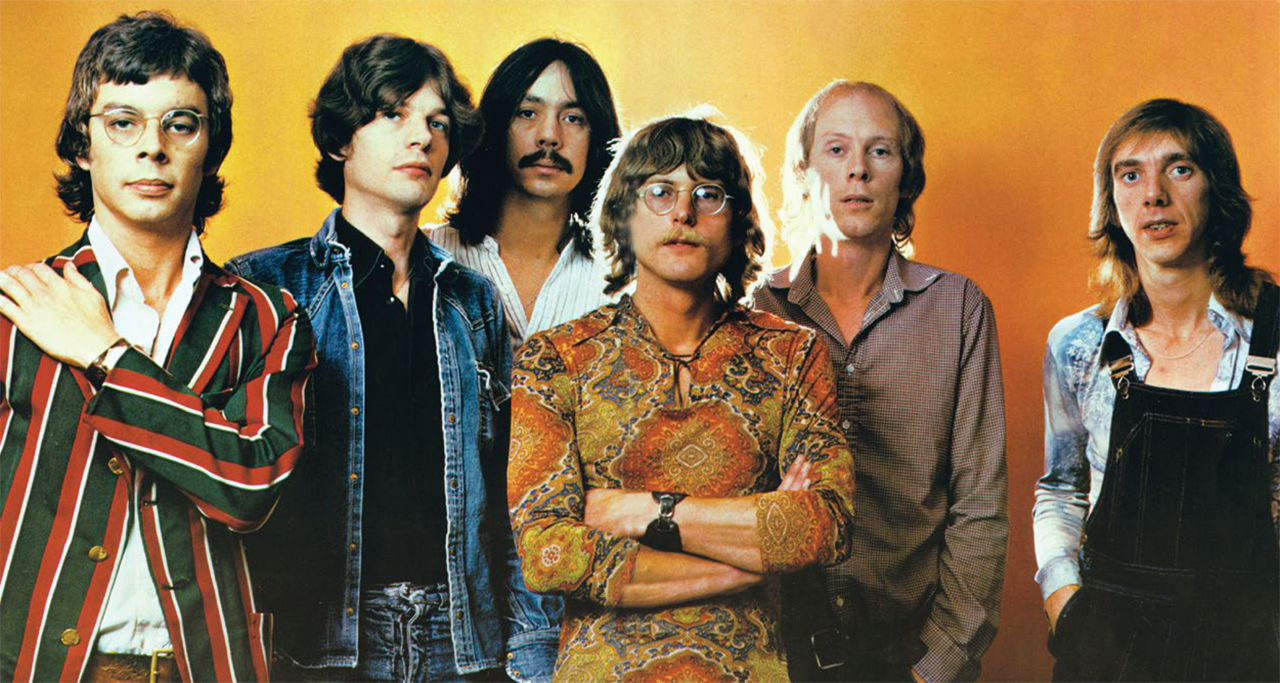
When you left Caravan and formed Hatfield And The North, your bass playing became more imaginative and expansive.
It was already going that way with Caravan’s Waterloo Lily. That’s why I moved, because that’s what was in me. I’d already been influenced by Pye because of the music he listened to, things like Wes Montgomery and [trumpeter] Don Ellis’ album Live in 32/3/4 Time. Caravan were already going there on If I Could Do it All Over Again, I’d Do It All Over You – that’s in seven time. I’m a natural at that, because I learn everything by ear. I can sing over the top of different rhythms and play bass at the same time. For me, it’s like playing piano.
I thought Pip Pyle and I were easily the best rhythm section that was happening then, because I didn’t really play like a bassist. It was like soloing all the way through, but I was able to play the riffs and I could always establish the roots and change all the chords for everybody as well. Onstage I used to keep good time while Pip was all over the place. He had a problem with his lungs, and he used to use a Spinhaler to slow his heart down for his breathing. But as it wore off, he started to go faster!
I wrote the tune for Share It. Pip wrote really good lyrics for that, and for Fitter Stoke Has A Bath. We used to work together, although people relate it all to me because I sing it.
One of your most poignant Hatfield songs was Didn’t Matter Anyway. What was the inspiration?
That was written for a girlfriend who was in love with me, but was younger than me. She was a very sweet girl. I was really writing that we’re not going to be together, but we’ll always be friends.
Some of yours and Pip’s lyrics, and Robert Wyatt’s, drolly describe everyday situations, including the process of making the music that we’re listening to. And there are numerous references to drinking tea.
I think all the writers of the Canterbury scene did it – Daevid Allen, Kevin, Robert, myself, Pye. A lot of it was to do with entertainment, the humour of the lyrics, the whimsical moments. I can relate it back to my grandfather, because he was in vaudeville and he was a comedian, and so that’s part of my history.
In 1974 you played on Robert Wyatt’s Rock Bottom. What was that like?
Hatfield got too set in its ways. I can only be me – that’s why I sound like I do
It’s a beautiful album. It’s a bit sad, but that’s what the situation was. I like his jolly music a bit better, but the tracks I played on were great. Everybody played at different times and it was collaged together. My bass parts came on last, which was perfect for me. Nick Mason is a fantastic engineer, really one of the best. It was very easy to be with him and Robert in the studio.
I really got off on that music – really studied it. Robert is like Miles Davis. He doesn’t give you parts; instead he gets the best out of the people he knows that are going to make a good job of his music.
You still perform songs from Hatfield And The North. Why did you leave the band?
The Rotters’ Club was full up with stuff from Dave Stewart. He became the leader of the band, really. I enjoyed playing with Phil and Pip, also David in the early days; but then it got a bit too set in its ways. And I can only be me, I’m afraid – that’s why I sound like I do.
What were the circumstances behind joining Camel in 1977?
Andy Latimer destroyed a really good band, because Doug Ferguson was perfect for them. While Pete Bardens was in the band they had a partnership, but really, Andy wanted to rule the roost and he and Pete fell out. He wanted a new bass player because Doug couldn’t play Skylines, so Andy Ward suggested they get in touch with me.
We had a lovely time for a week in a big farm house in Devon, going through the music, and they said, “Well, you got the job. We’d like you to come and record with us.” I got paid quite a lot of money to be the singer and bass player. And then after it, they said, “We want you to join the band.”
Andy Latimer was perfecting a solo for seven days while we were all eating, drinking and playing pool
We went to Japan, went to Finland and played big festivals. We travelled in a Volvo coach, which was all kitted out. Everything was well organised – it’s like, suddenly you’re a rock star. We toured Germany playing universities and big halls, and it was always the same set of music with three encores. In Hatfield And The North we wrote the set on the way to the gig in Pip’s mother’s Ford Capri.
After playing in Hatfield And The North, it was a joke to Pip and Phil that I was playing in Camel. I said, “I really enjoy that music. Pete Bardens is a wonderful keyboard player, and Andy Ward is an entertaining drummer, second to none.” Mel Collins was in the band then on sax and flute. It was a lovely experience for me and gave me many more fans.
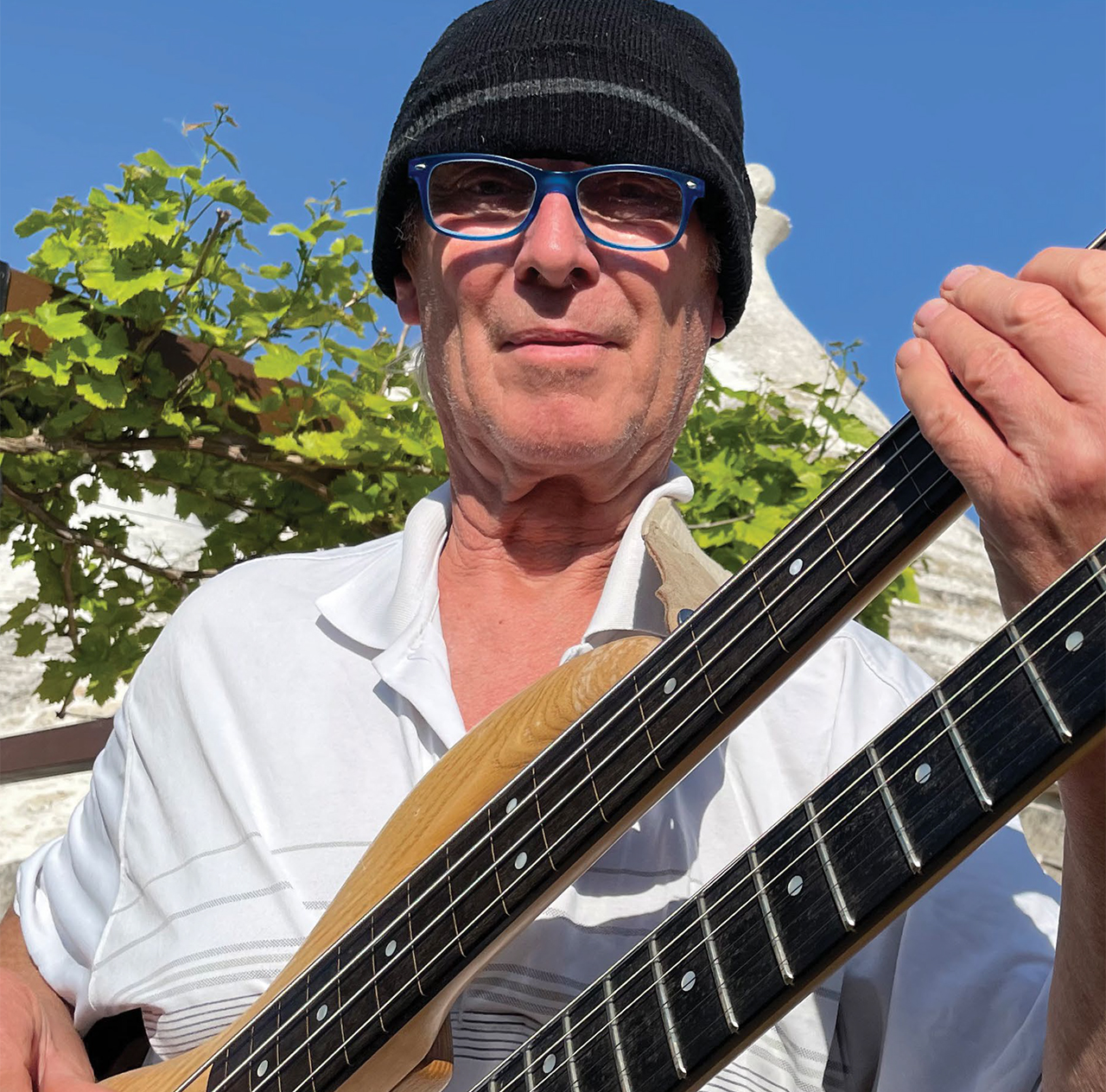
Do you have any particular memories of recording with Camel?
Breathless cost £76,000 to make. We were in the Manor studio forever. Andy was perfecting a solo to something for seven days, while we were all eating, drinking and playing pool. Hatfield And The North could have made many albums for that, easily!
Andy had varicose veins so his nickname was “Sir Edmund Varicosi.” And Pete used to take the rise out of me because I was going bald, so I was “A Star Is Bald.” Pete’s nickname was “Mr P Ygmy.” Andy’s nickname was “Squirty.” We were in the airport due to fly to Hamburg, and no one could find Pete. And so Andy got the girl on the deskto say over the Tannoy, “Hello, this is Camel here. Will Mr P Ygmy please come to the front desk?”
What did you do after leaving Camel?
I moved into jazz. I really liked Mahavishnu Orchestra, John McLaughlin, the first progressive jazz-rock, and guitarists John Scofield and Pat Metheny. I played on Before A Word Is Said with keyboardist Alan Gowen in 1981. Very complicated music, very long lines – for me a bit too long – but it was lovely music.
Then I was in the original line-up of In Cahoots with Phil Miller from 1982. I did that for two years. We were always forming bands together. Phil’s music is nice for bass, because there are all these solo melody lines. I did their first tour, but I didn’t make an album with them. Some concerts I played with them are on my Bandcamp. All the way through my career I had a tape recorder onstage; I recorded every gig I did so I could work on my playing.
Somewhere In France, recorded with Hugh Hopper in 1983, is rather an overlooked gem.
Hugh wasn’t in a band but he wanted to make a song album, so I drove down to Jacky Barbier’s studio in Bresse-sur-Grosne in France. It was a big roadside cafe with a studio in it, and we spent two weeks there. I’ve even got the tape of it all before it got remixed. Hugh was always changing things – when we played it first of all, it was much better.
I was making bands all the way through the 80s. I was pretty busy, but I wasn’t really on the radar. I made a couple of albums in the early 90s; one was called Caravan Of Dreams with Andy Ward on drums, Jimmy Hastings and Dave Sinclair; another was called RSVP. Then I did solo tours in ’92, ’93 and ’94. That was an important thing for me because I’d actually left the boys’ club and went all around planet Earth where people wanted to play with me. I played in people’s gardens, in theatres – everything.
First of all I’m going to bring out a solo album, which everybody’s been waiting for since I left Hatfield
What are your current projects?
I just played some local concerts for my birthday. My band is called Richard Sinclair’s Birthday Rotters’ Club Band. We were celebrating the 50th anniversary of the album and my 77th lap of the sun. Still rocking, you know! And every week I record other people’s music. I get asked to play bass and sing.
If I get enough people joining my Sinclair Songs fanclub on Bandcamp and raise enough money from that, I’m going to bring out many of the things that are on Bandcamp. I’ll also bring out Somewhere In France and other things I’ve worked on. There’s a possibility that quite a few live albums will come out. But first of all, I’m going to bring out a solo album, which everybody’s been waiting for since I left Hatfield!
You must have amassed a lot of songs.
Yes – I have my own new music, a ton of stuff. Some of it’s already recorded, and it’ll come out next year or towards the end of this year. Now I write everything on guitar; only a few songs on bass. I hear melodies from chords, especially after working with Phil Miller. He was very ‘out there’ on his own, because it sounds dissonant, but it’s not. The melodies he wrote are just fantastic. Robert Wyatt made a joke when Phil was in Matching Mole: Phil would never play a note that someone else had played before. He was totally unique.
What’s it like living in Puglia?
I really love it. It’s gorgeous. I live in the countryside, and I have a studio inside in my trullo – it’s a stone building with roof cones. It has a really good, lively acoustic. And when I’m outside I sing with the birds.
Mike Barnes is the author of Captain Beefheart - The Biography (Omnibus Press, 2011) and A New Day Yesterday: UK Progressive Rock & the 1970s (2020). He was a regular contributor to Select magazine and his work regularly appears in Prog, Mojo and Wire. He also plays the drums.
You must confirm your public display name before commenting
Please logout and then login again, you will then be prompted to enter your display name.






